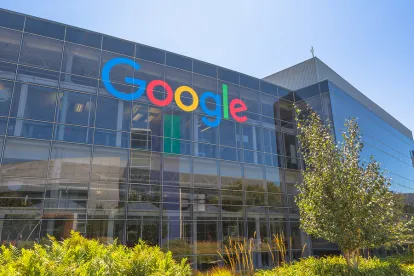On September 21, 2020, in a published 2-1 opinion in Doe v. Google Inc., the California Court of Appeal (Dist. 1, Div. 4), permitted three current and former Google employees to proceed with their challenge of Google’s confidentiality agreement as unlawfully overbroad and anti-competitive under the California Private Attorneys General Act (“PAGA”) (Lab. Code § 2698 et seq.). In doing so, the Court of Appeal reversed the trial court’s order sustaining Google’s demurrer on the basis of preemption by the National Labor Relations Act (“NLRA”) (29 U.S.C. § 151 et seq.) under San Diego Bldg. Trades Council v. Garmon, 359 U.S. 236, 244–245 (1959). The court held that while the plaintiffs’ claims relate to conduct arguably within the scope of the NLRA, they fall within the local interest exception to Garmon preemption and may therefore go forward. It remains to be seen whether plaintiffs will be able to sustain their challenges to Google’s confidentiality policies on the merits. However, Doe serves as a reminder to employers to carefully craft robust confidentiality agreements, particularly in the technology sector, in anticipation of potential challenges employees may make to those agreements.
Google requires its employees to sign various confidentiality policies. The plaintiffs brought a lawsuit challenging these policies on the basis that they restricted their speech in violation of California law. Specifically, the plaintiffs alleged 17 claims that fell into three subcategories based on Google’s confidentiality policies: restraints of competition, whistleblowing and freedom of speech. The claims were brought under PAGA, a broad California law that provides a private right of action to “aggrieved employees” for any violation of the California Labor Code. PAGA claims are brought on a representative basis—with the named plaintiffs deputized as private attorneys general—to recover penalties on behalf of all so-called “aggrieved employees,” typically state-wide, with 75% of such penalties being paid to the State and 25% to the “aggrieved employees” if the violation is proven (or a court-approved settlement is reached).
In their competition causes of action plaintiffs alleged that Google’s confidentiality rules violated Business & Professions Code sections 17200, 16600, and 16700 as well as various Labor Code provisions by preventing employees from using or disclosing the skills, knowledge, and experience they obtained at Google for purposes of competing with Google. The court noted that section 16600 “evinces a settled legislative policy in favor of open competition and employee mobility” that has been “instrumental in the success of California’s technology industry.” The plaintiffs complained that Google’s policies prevented them from negotiating a new job with another employer, disclosing who else works at Google, and under what circumstances the employee may be receptive to an offer from a rival employer.
With respect to their whistleblowing claims, the plaintiffs alleged that Google’s confidentiality rules prevent employees from disclosing violations of state and federal law, either within Google to their managers or outside Google to private attorneys or government officials in violation of Business & Professions Code section 17200 et seq. and Labor Code section 1102.5. Similarly, it is alleged that the policies ostensibly prevented employees from disclosing information about unsafe or discriminatory working conditions, a right afforded to them under the Labor Code.
In their freedom of speech claims, plaintiffs alleged that Google’s confidentiality rules prevent employees from engaging in lawful conduct during non-work hours and violate state statutes entitling employees to disclose wages, working conditions, and illegal conduct under various Labor Code provisions. The employees argued this conduct could be writing a novel about working in Silicon Valley or to even reassure their parents they are making enough money to pay their bills—i.e., matters seemingly untethered to a legitimate need for confidentiality.
While Google’s confidentiality rules contain a savings clause—confirming Google’s rules were not meant to prohibit protected activity—the plaintiffs argued that the clauses were meaningless and not implemented in its enforcement of its confidentiality agreements.
Google demurred to the entire complaint, and the trial court sustained the demurrer as to plaintiffs’ confidentiality claims, agreeing that the NLRA preempted such claims.
On appeal, the Court of Appeal recognized that the NLRA serves as a “comprehensive law governing labor relations [and] accordingly, ‘the NLRB has exclusive jurisdiction over disputes involving unfair labor practices, and “state jurisdiction must yield’ when state action would regulate conduct governed by the NLRA. (Garmon, [supra, 359 U.S.] at pp. 244-245.)” But the court cautioned that NLRA preemption under Garmon cannot be applied in a “mechanical fashion,” and its application requires scrutiny into whether the activity in questions is a “merely peripheral concern” of the NLRA or where the “regulated conduct touche[s] interests so deeply rooted” in state and local interests.
In analyzing the federal and state issues at state, the Court of Appeal found that several of the statutes undergirding plaintiffs’ PAGA claims did not sound in principles of “mutual benefit” that are the foundation of the NLRA but protected the plaintiff’s activities as individuals. The court cited several examples, including Labor Code section 242 prohibition of employers preventing employees from disclosing the amount of his or her wages (a statute enacted to prevent sex discrimination) and Labor Code section 232.5, prohibiting an employee from disclosing information about the employer’s working conditions (manifesting California’s policy to prohibit restrictions on speech regarding conditions of employment). The court likewise found that the NLRA did not protect much of the activity prohibited by the statutes that supported plaintiffs’ PAGA claims, noting that the NLRA did not prohibit rules inhibiting employees from seeking new employment and competing with Google, as plaintiffs alleged Google’s confidentiality rules did. It further does not protect whistleblowing activity unconnected to working conditions, such as violations of securities law, false claims laws, and other laws unrelated to terms and conditions of employment.
Nevertheless, the court held that, regardless of diverging purposes of the NLRA and the laws that support the plaintiffs’ PAGA claims, plaintiffs’ claims fall squarely in the local interest exception to NLRA preemption. Where an employer’s policies are arguably prohibited by the NLRA, the local interest exception to NLRA preemption applies when (1) there is a “significant state interest” in protecting the citizen from the challenged conduct, and (2) the exercise of state jurisdiction entails “little risk of interference” with the NLRB’s regulatory function. The court found no difficulty in determining that an action under PAGA, where the plaintiffs are serving as a “proxy or agent of the state’s labor law enforcement agencies” grows from “deeply-rooted local interests” in regulating wages, hours, and other terms of employment. It also found that a state’s enforcement of its minimum employment standards, particularly in relation to the plaintiffs claims in this case, were peripheral to the NLRA’s purpose of safeguarding, first and foremost, workers’ rights to join unions and engage in collective bargaining. Thus, the court held, there was no basis for NLRA preemption in this case.
Particularly in light of this opinion, employers who require employees to execute confidentiality agreements with their employees should be cognizant of the myriad of ways that they can be challenged. As in the case of Doe v. Google, Inc., such challenges may not be just from individuals bringing claims in their own capacity, but as private attorneys general bringing representative claims on behalf of all California employees. Nor can NLRA preemption be mechanically applied to preempt claims based upon such agreements. Employers would be well-advised to review their existing confidentiality agreements and consult experienced counsel before revising or rolling out such agreements.



 />i
/>i
